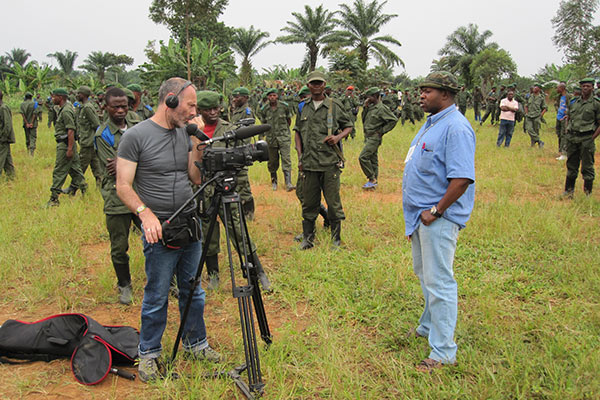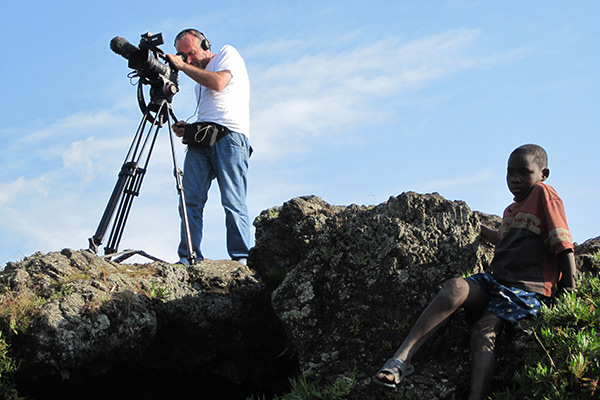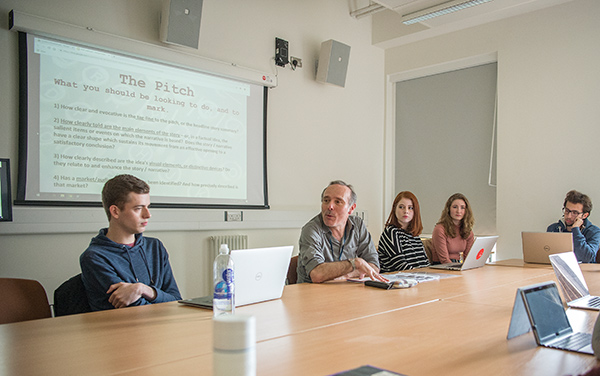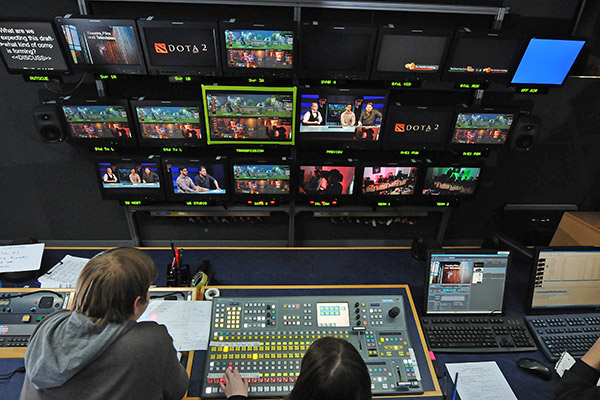Congratulations on your offer to study with us!
We wanted to give you a chance to find out more about Ed Braman, a former current affairs and documentary producer.
I have worked as a current affairs and documentary filmmaker at ITV, the BBC and Channel 4, and I've run series or originated commissions for all the main UK networks, as well as international broadcasters like Discovery. I've been Commissioning Editor for News and Current Affairs at Channel 4, and an Executive Producer at a number of independent production companies, including the leading maker of high-impact current affairs.
When I was a producer, I specialised in war zones and foreign reporting. When the first Iraq war broke out, I was sent to cover it, and it went from there - I felt that I understood how to work in dangerous environments.
I started in the industry when Margaret Thatcher was prime minister. British society was very divided. There were complex questions which were changing the nation. I felt the most responsible thing to do was to get involved in analytical journalism, to try to understand what was happening to us.

Ed making a Channel 4 documentary about child soldiers in Eastern Congo

Ed making a Channel 4 documentary about child soldiers in Eastern Congo
I research post-war American literature and its cultural and political situation. I've spent a lot of time working on the recent history of American cinema and TV, including the growth period in the 70s when filmmakers like Scorsese, Spielberg, Hal Ashby and Alan Pakula emerged. This was one of the great flowerings of modern American cinema.
My research intersects with my teaching in a number of areas. I think about how narrative works, and I think about how narrative organises the world. When we make a documentary, which is supposed to be an account of real things happening in the real world, are we actually presenting reality, or are we imposing a narrative and ideological structure on it? If we start thinking about the narrative - what is included and excluded - how do we assess what a documentary is doing? What are its truth claims? And can we trust them?
I have years of experience in the television industry. I’ve spent a lot of time thinking about how it is managed, organised, what shape it takes, and how it operates politically, socially, economically, institutionally and so on.
I teach how creativity works from an industrial, institutional, structural and political perspective - not just in terms of aesthetic output.


You’ll be here looking at business; film and television production; theatre; or interactive media. But you’ll be part of an environment where everybody is talking about all of these things, which is a rare opportunity. There are conversations that take place here between computer scientists and studio directors, between theatre-makers and filmmakers, between people who focus on theory and practitioners applying that theory to their creative work.
So many of our students arrive thinking that they want to be one thing, and emerge passionate about something else. It’s testament to the fact that we help creative people grow, adapt, learn and find themselves in a way that less integrated universities could never do.
We approach our subjects with a forward-looking, creative, innovative, rigorous, expansive spirit. It's something that you're unlikely to find anywhere else. It’s very exciting to be a part of.